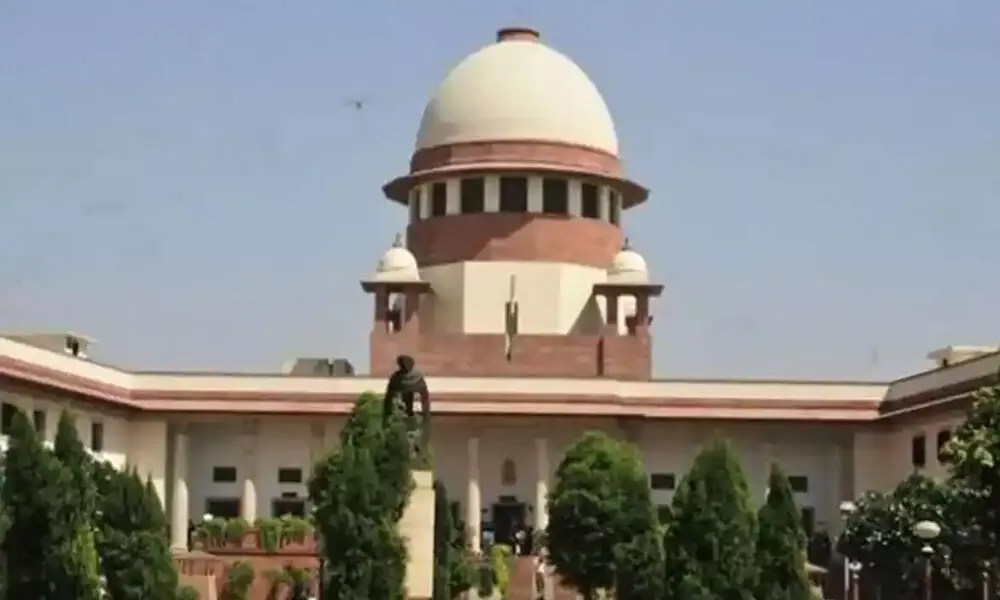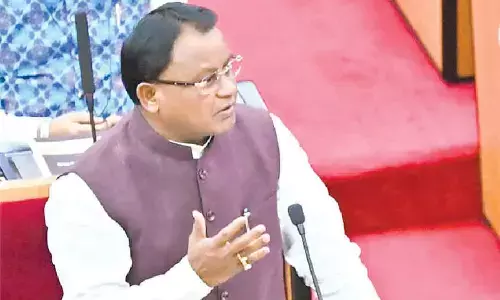Loan moratorium case: SC orders waiver of compound interest for all borrowers

Supreme Court
The Supreme Court on Tuesday, March 23, 2021, ruled that there shall be a waiver of interest on interest, i.e. compound interest, with respect to EMIs, which was not paid by the borrowers after availing of the loan moratorium scheme, which was extended by the Reserve Bank of India.
The Supreme Court on Tuesday, March 23, 2021, ruled that there shall be a waiver of interest on interest, i.e. compound interest, with respect to EMIs, which was not paid by the borrowers after availing of the loan moratorium scheme, which was extended by the Reserve Bank of India.
The top court said that there is no justification for extending the waiver of compound interest or interest on interest only for loans up to Rs 2 crore. It held that any amount collected as compound interest shall be adjusted to the next instalment payable instead of refunding it to the borrower.
Nifty Bank rose after the Supreme Court Verdict. At 12:23 pm, Bandhan Bank trading 2.23 per cent up was followed by Bank of Baroda (up 1.59 per cent), IndusInd Bank (up 1.14 per cent), PNB (up 1.05 per cent) and SBI (up 0.83 per cent).
However, the apex court refused to interfere with the government and the Reserve Bank of India's (RBI) loan moratorium policy and declined to extend the six months loan moratorium period. The apex court said that the waiver of complete interest is not possible as it affects depositors.
The Supreme Court pronounced its verdict on a batch of pleas filed by companies, various trade associations, including the power sector and real sectors, and individuals among others. The petitioners were seeking an extension of the loan moratorium and other reliefs in view of the Coronavirus – COVID-19 – pandemic. They also challenged the decision of the centre and RBI to charge interest during the moratorium period and restrict waiver of interest on interest to certain categories of borrowers who availed loans less than Rs 2 crore.
A bench headed by Justice Ashok Bhushan had reserved its verdict on the batch of pleas on December 17, 2020. The other members of the three court bench were Justice R Subhash Reddy and Justice MR Shah.
PTI tweeted, "Loan moratorium: SC says it cannot do judicial review of Centre's financial policy decision unless it is malafide, arbitrary."
https://twitter.com/PTI_News/status/1374239835339124737
The Apex Court refused to interfere with the decision of Centre, RBI to not extend the loan moratorium period beyond Aug 31, 2020, saying it is a policy decision.
The central government in its submission to the apex court earlier said that if it were to consider waiving interest on all the loans and advances to all categories of borrowers for the six-month moratorium period that was announced by the Reserve Bank of India in view of the COVID-19 pandemic, then the amount foregone would be more than Rs 6 lakh crore.
It added, if the banks will have to bear this burden that it would lead to wiping out of a substantial and a major part of their net worth, rendering most of the lenders unviable and raising a very serious question mark over their survival.
The government said this was the main reason why a waiver of interest was not even contemplated and only payment of instalments was deferred.
On November 27 last year, the top court directed the central government to take the necessary steps to implement its decision to forego interest on eight specified categories of loans paid up to Rs 2 crore in view of the coronavirus pandemic.
The apex court had noted that the moratorium period as granted by the Reserve Bank of India continued from March 3 to August 31, 2020, i.e. six months.
The RBI had on March 27 issued the circular which allowed lending institutions to grant a moratorium on payment of instalments of term loans falling due between March 1 and May 31, 2020, due to the pandemic. Later, the moratorium was extended till August 31 this year.










